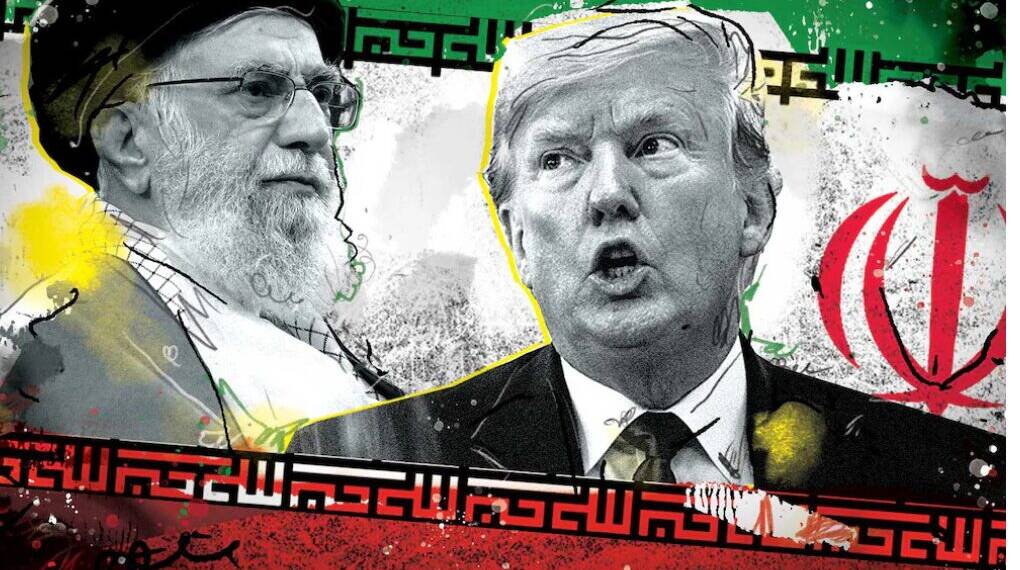In a defiant statement on Monday, Iran’s Supreme Leader Ayatollah Ali Khamenei rejected US President Donald Trump’s assertions that Washington had “obliterated” Iran’s nuclear sites during the June airstrikes. Posting on his official website, Khamenei said Trump should “keep dreaming,” ridiculing the American leader’s comments as “boastful propaganda” aimed at domestic audiences rather than grounded in reality.
“The United States has no right to dictate what a sovereign nation can or cannot possess,” Khamenei said. “Such arrogance and bullying reflect their imperial mindset — not facts on the ground.”
His sharp remarks came in direct response to Trump’s recent speech at the Israeli Knesset, where the former president declared that “14 bombs were dropped on Iran’s key nuclear facilities,” which he claimed were “totally obliterated.” Trump further described the strikes as “the most beautiful military operation” and said that Iran “no longer remained the bully of the Middle East.”
The June Strikes: A New Chapter in US–Iran Hostilities
The unprecedented military escalation took place in mid-June when Israel launched a series of airstrikes targeting Iranian military and nuclear assets. The United States, according to multiple reports, briefly joined the offensive, striking what were described as “key nuclear facilities” across Iran.
The operation came just two days before the planned sixth round of nuclear negotiations between Tehran and Washington — talks that were expected to pave the way for the revival of the 2015 nuclear deal. Instead, the strikes shattered the fragile diplomatic process, pushing Iran to suspend all negotiations and demand security guarantees against future US military actions.
While both Israel and the US touted the strikes as a major success, the actual damage remains uncertain. The Pentagon later said that the operation had “set back Iran’s nuclear program by between one and two years.” However, an earlier classified US intelligence assessment — leaked to American media — contradicted this, suggesting that the disruption may have lasted only a few months.
Iran has not allowed international inspectors to publicly confirm the scale of damage, citing national security concerns. Experts believe that while some key facilities were hit, Tehran’s nuclear know-how and underground infrastructure likely remain intact.
Khamenei’s Message: Iran Will Not Bow to Pressure
Ayatollah Khamenei’s latest statement underscores Tehran’s position that it will not surrender its nuclear ambitions under external pressure. “If they think Iran’s nuclear capability can be erased by a few bombs, they are gravely mistaken,” he said. “Our scientists, our knowledge, and our resolve cannot be destroyed.”
The Supreme Leader accused the United States of trying to “humiliate Iran through coercion” while simultaneously calling for dialogue — a contradiction he said Iran would no longer tolerate. He reiterated that Tehran would only return to negotiations if Washington guaranteed “no future military aggression” and lifted all sanctions imposed since 2018.
Khamenei’s rhetoric echoes growing nationalist sentiment within Iran, where the strikes are viewed as an act of war that violated international law. The Iranian Parliament has called for a full investigation into the attack, and state media continues to portray the US–Israeli operation as a failed attempt to cripple Iran’s defense and nuclear capabilities.
Washington’s Strategic Ambiguity
Despite Trump’s boastful claims, Washington’s official response has been more measured. Pentagon officials have carefully avoided confirming the “obliteration” narrative, focusing instead on describing the operation as a “precision deterrence strike.”
Behind the scenes, US defense analysts worry that the June operation may have further hardened Iran’s stance, pushing it closer to developing a nuclear deterrent. “Military strikes may have delayed the program, but they’ve also deepened Iran’s mistrust,” a former US intelligence official told Reuters.
Diplomatic sources indicate that backchannel efforts to resume talks remain frozen, as Tehran demands assurances that no similar attack will occur in the future — a condition Washington so far refuses to accept.
A Region on Edge
The June war between Israel and Iran marked one of the most intense military confrontations in recent years. Israel justified its strikes as preemptive measures against “imminent Iranian threats,” while Iran retaliated with missile attacks on Israeli military outposts in the Golan Heights.
Regional powers, including Saudi Arabia and Turkey, have urged restraint, warning that continued escalation could destabilize the entire Middle East. Meanwhile, global oil prices briefly spiked following the strikes, reflecting market fears of a broader regional conflict.
As of now, the true state of Iran’s nuclear infrastructure remains a mystery. What is clear, however, is that neither Tehran nor Washington appears ready to back down — setting the stage for a prolonged standoff between two deeply entrenched adversaries.
In Khamenei’s words:
“They dream of destroying Iran’s strength. But Iran’s strength lies not in its facilities, but in its people’s spirit — and that can never be bombed.”








